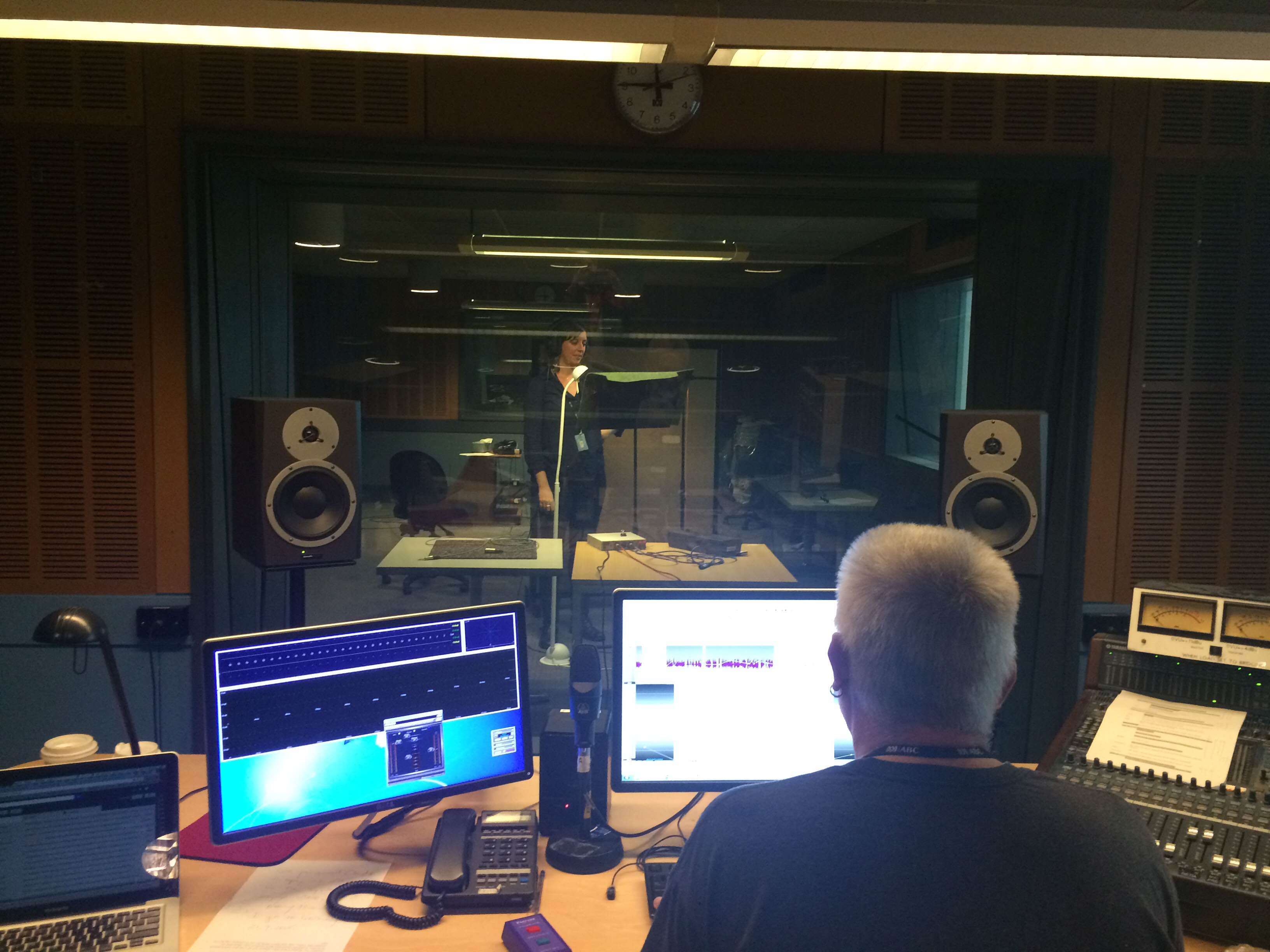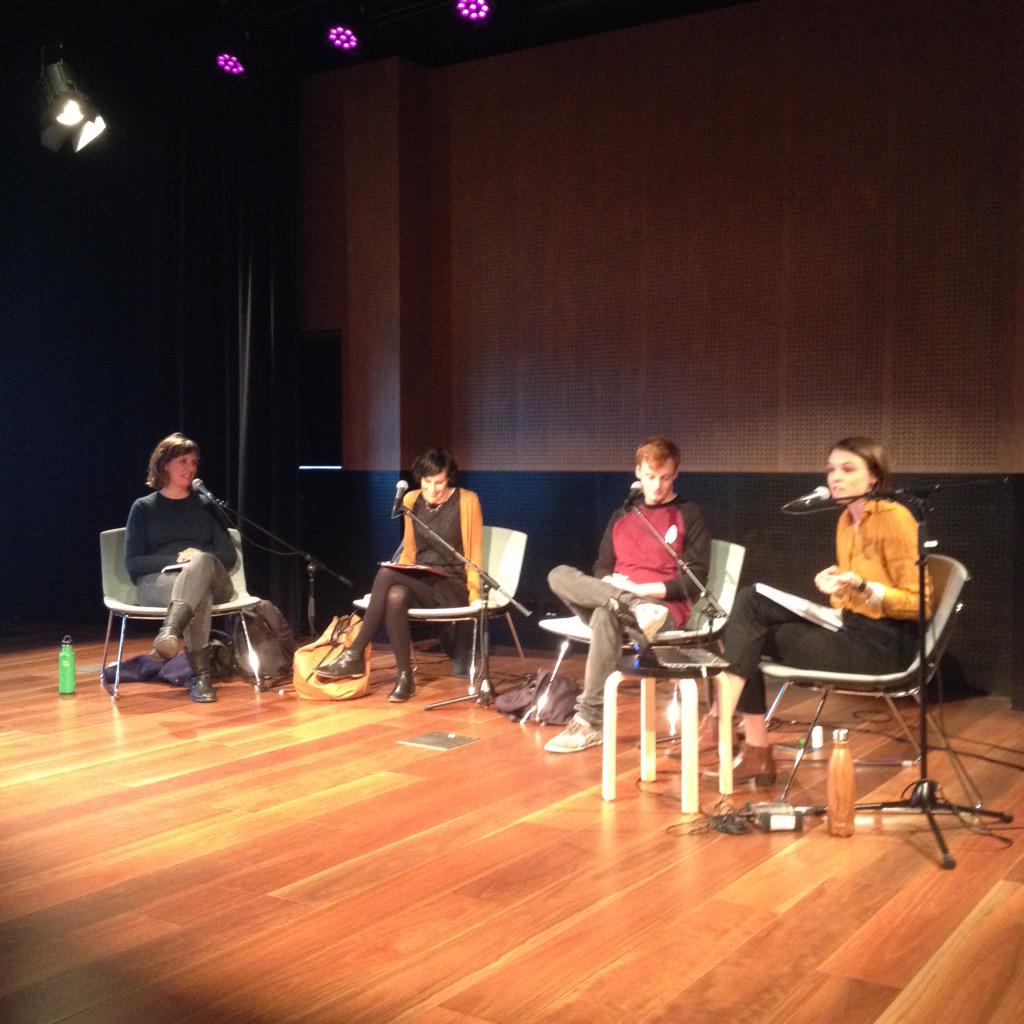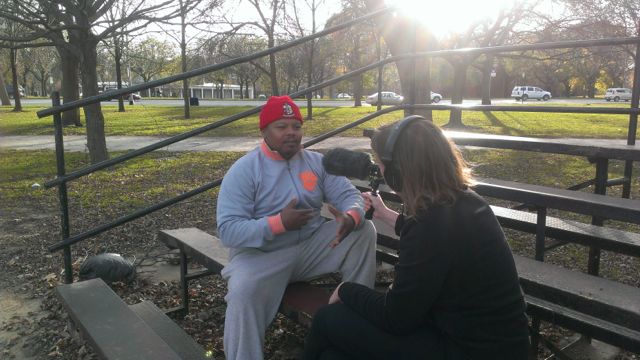I went to the Walkey Foundations’ Storyology conference in Sydney recently. It’s a gathering and information-blast for journalists and media-makers from Australia and overseas. Despite the slight depression in the air after the news of budget cuts and huge job losses at the ABC, there was still some inspiration to be had.
I really enjoyed the practical sessions like Aela Callan’s (Al Jazeera) ‘writing tight for TV and radio’ and ‘DIY Radio Doco’ with Gretchen Miller (ABC Radio National).
But my favourite session was Geraldine Doogue and David Leser in conversation about personal narratives. They talked about journalists crossing over into the unfamiliar territory of sharing their own story. They highlighted the increasing demand for ‘the personal’ in the media, and journalists’ hesitancy to share their own narrative. As Davis Leser pointed out:
“we set the conversation but never reveal our motivation”
David’s began writing his most recent book as a biography about his father, but it soon shifted to memoir.
“I couldn’t write about him without writing about myself”
He ended up producing a deeply personal portrait of father and son, and the complexities of family. For the first time, he turned his skills of investigation and truth seeking towards himself.
Geraldine shared her reluctance to write a memoir because she doesn’t feel ready to confront her grief over her husband’s death. But David argued that’s the perfect reason to write one. He suggested that writing about grief and writing through grief was the most cathartic way for him to recover after his father’s death.
“the writer’s job is to utter the unutterable and to find the truths that come to all of us….. [and] grief is what unites us. All those walls of separation drop in the valley of grief”
I found these two great thinkers incredibly honest and generous with their own experiences. And it definitely got me thinking more about the positives of being brave and sharing one’s own story, and how it might make us better equipped to help others share their personal story.
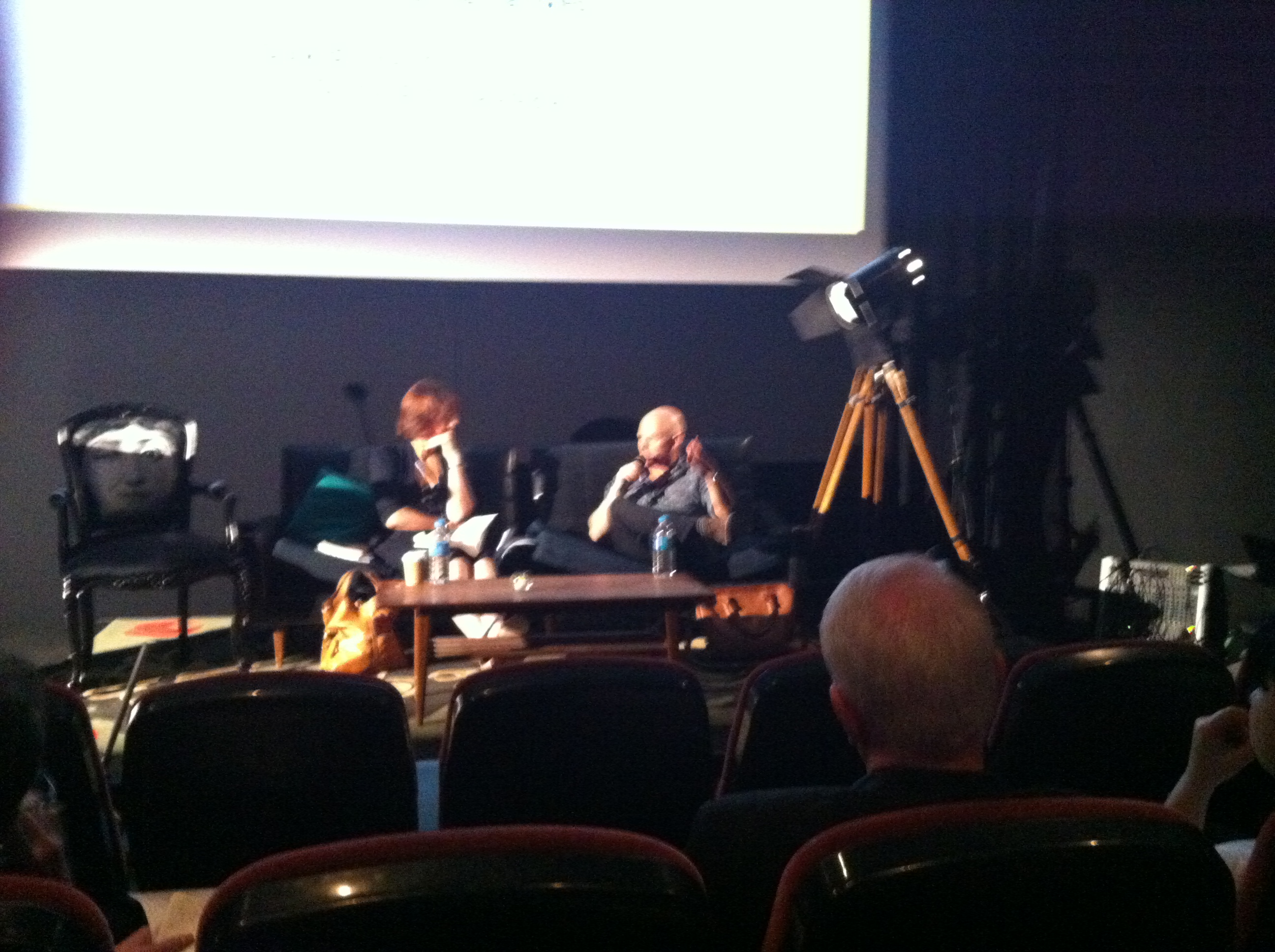
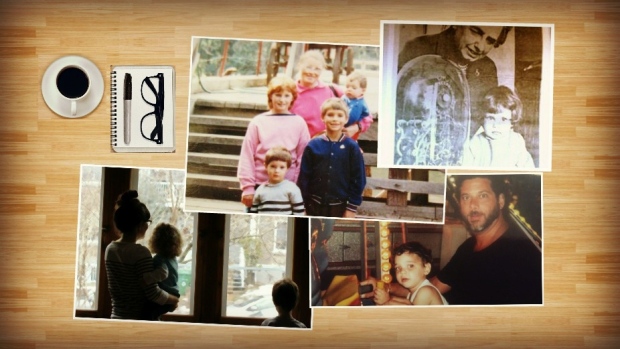

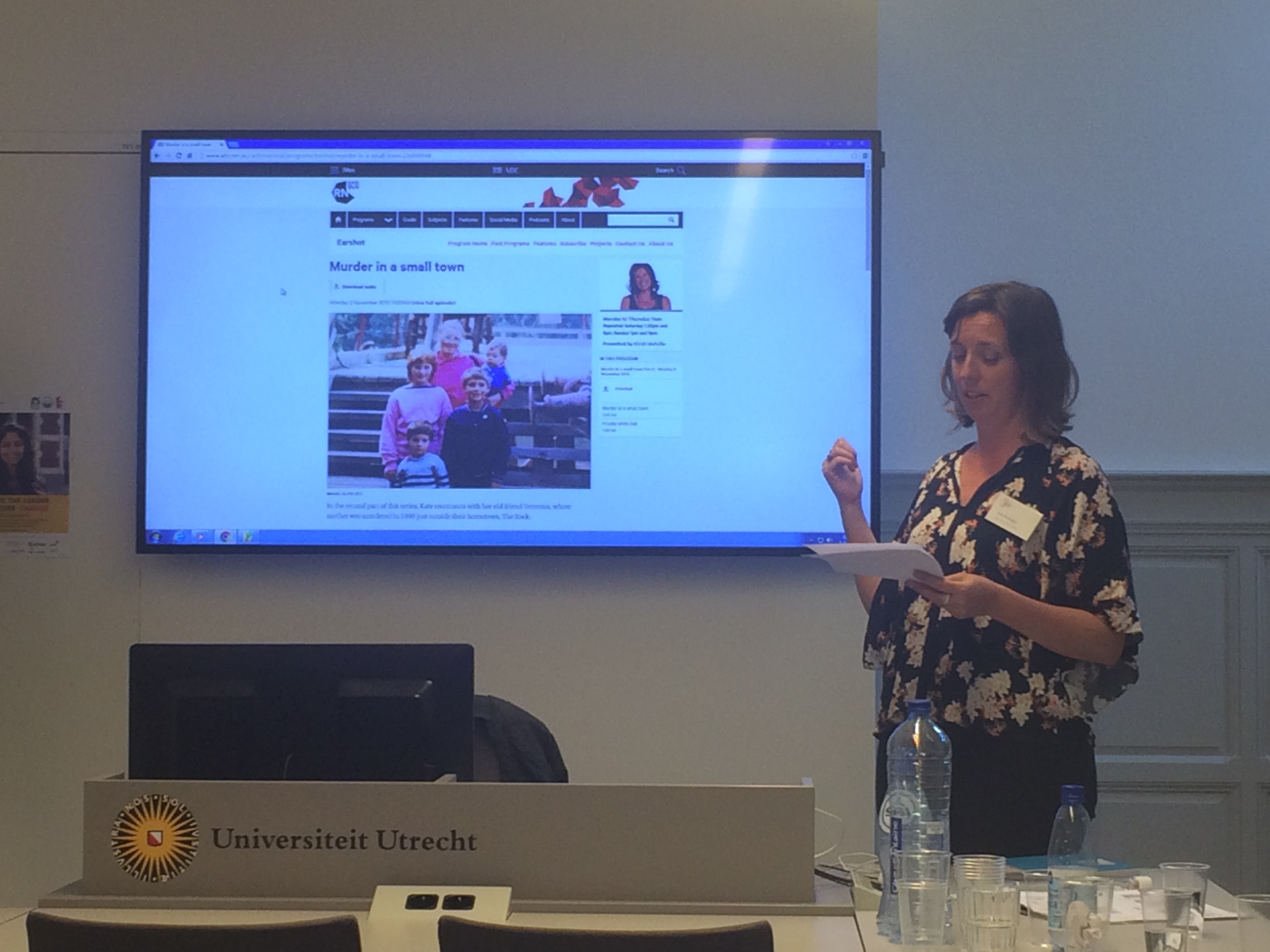
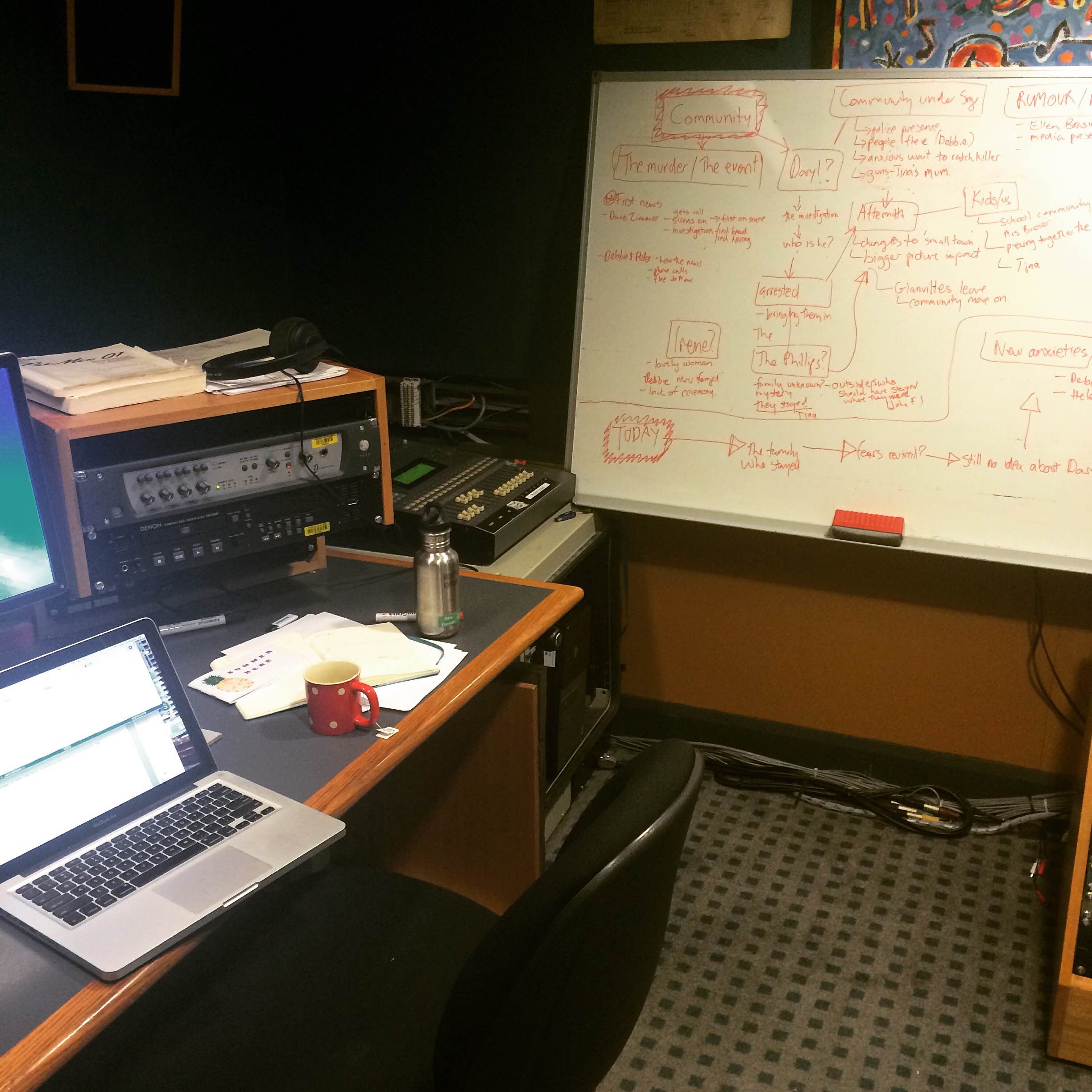 This has been my home for last few months- an editing cave at the ABC in Sydney.
This has been my home for last few months- an editing cave at the ABC in Sydney.